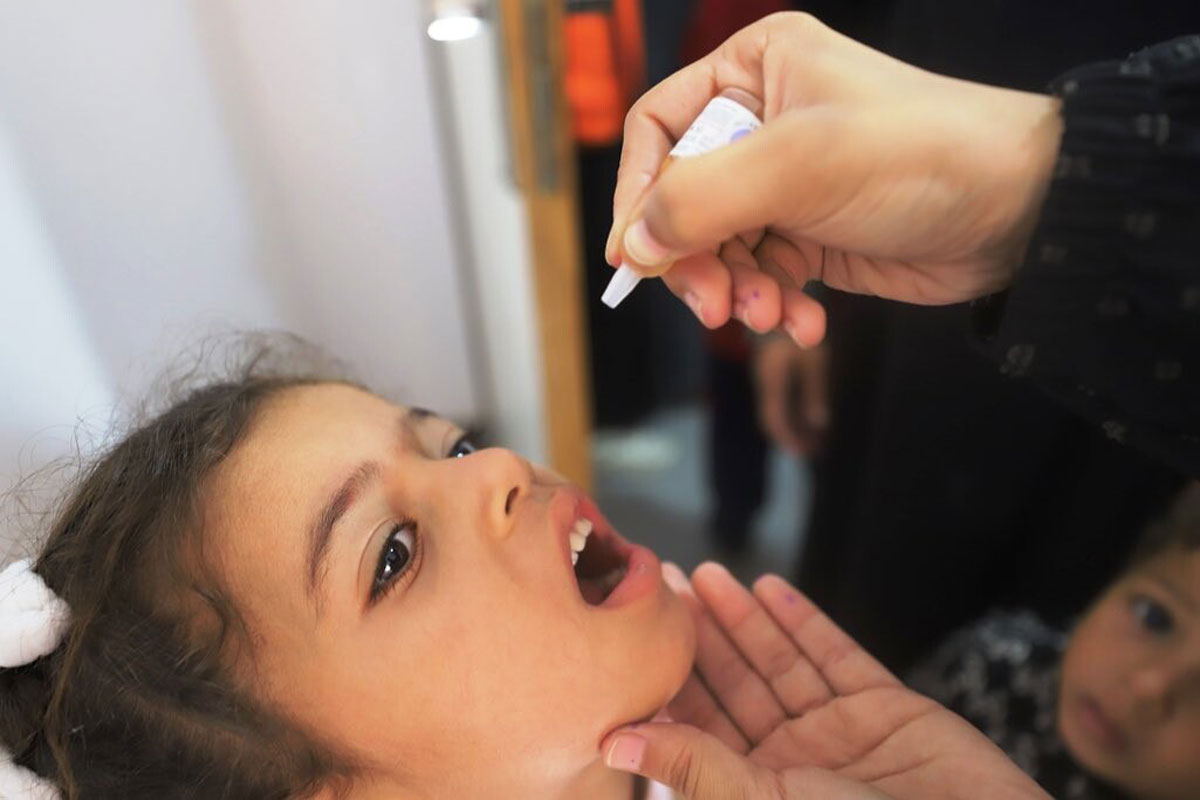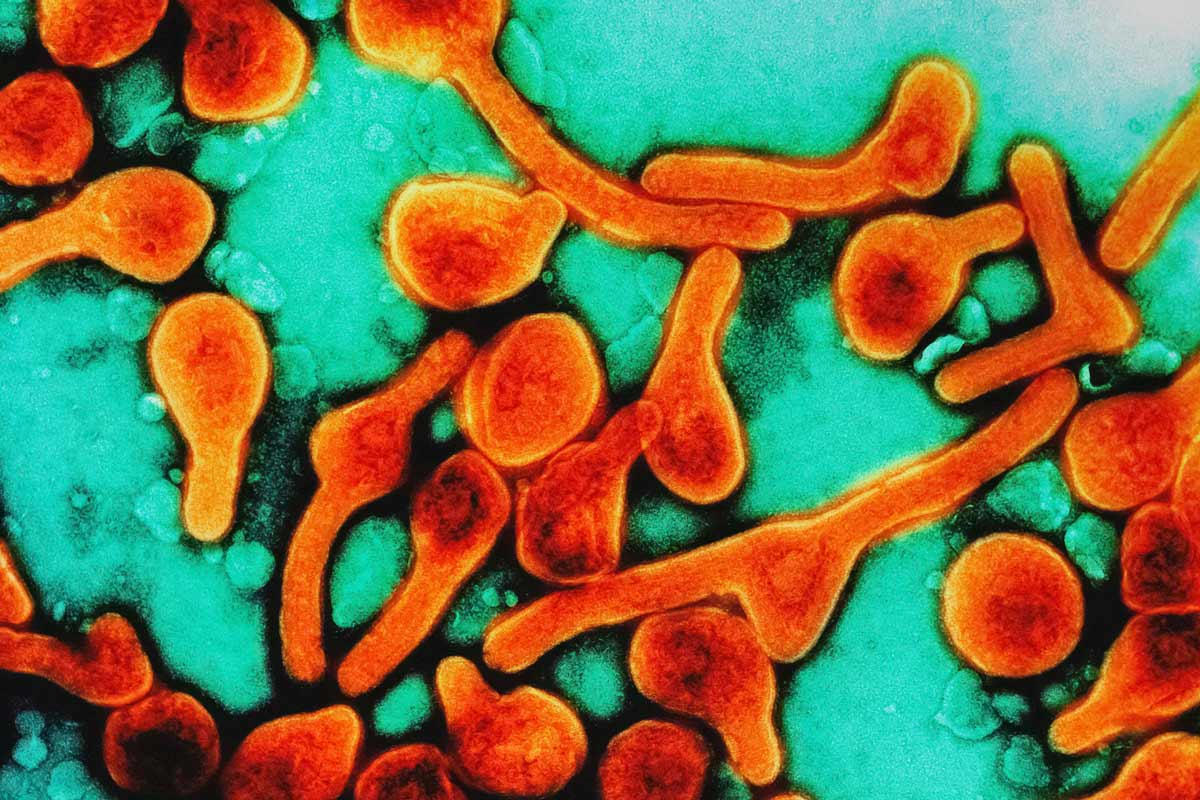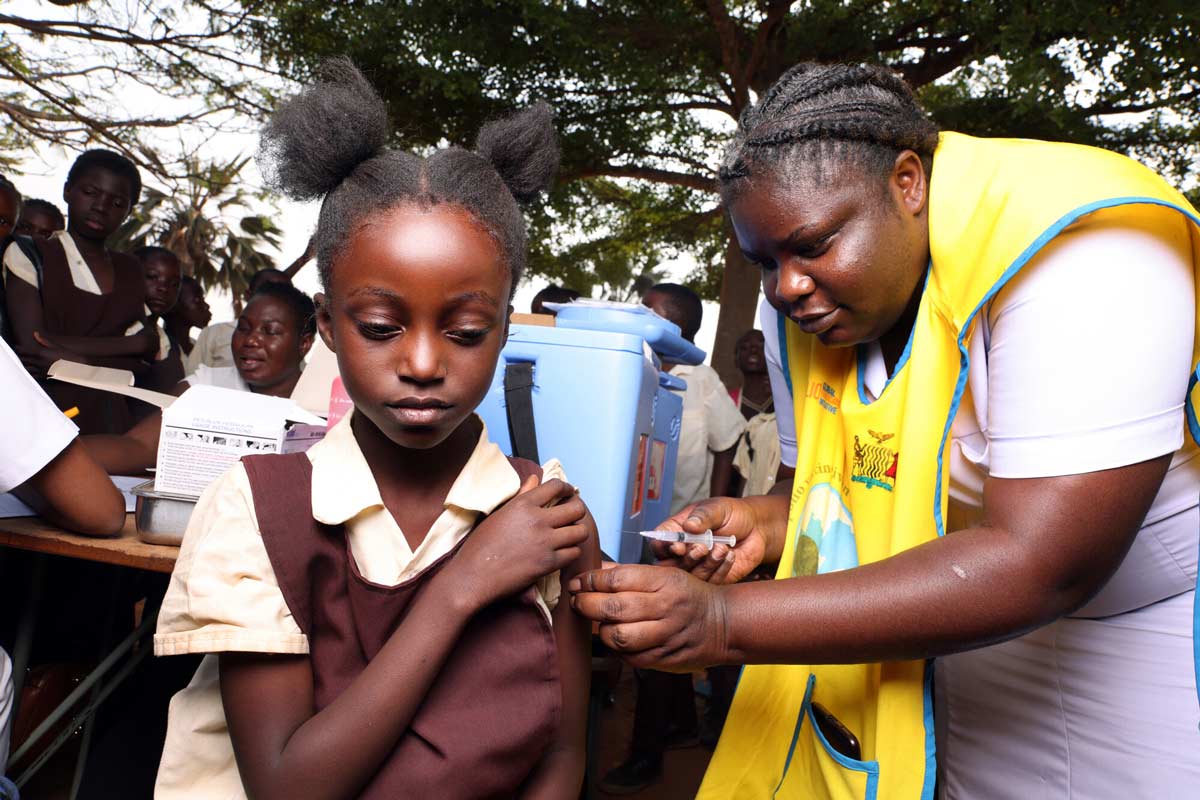Vaccine trial boosts hope of eliminating meningococcal disease in sub-Saharan Africa
Successful trial of the NmCV-5 pentavalent vaccine suggests it could contribute to the goal of defeating epidemic meningitis by 2030.
- 26 May 2023
- 4 min read
- by Linda Geddes

An effective, affordable vaccine against meningococcal disease has been successfully tested in Mali and The Gambia. Phase 3 clinical trial data suggests the vaccine is safe and induces a strong immune response across five strains of meningococcal bacteria: A, C, W, Y and X.
Experts believe it could provide a "critical tool" for interrupting and preventing meningitis epidemics across sub-Saharan Africa.
The results, published in the New England Journal of Medicine, found that the immune responses generated by a single dose of NmCV-5 after 28 days were generally higher than those generated by MenACWY-D. It also induced a strong immune response to the meningococcal X strain in 97% of participants.
Meningitis is an infection of the meninges, the thin lining that surrounds the brain and spinal cord. In some cases, the bacteria responsible can also trigger sepsis or blood poisoning.
Explosive outbreaks
Neisseria meningitidis (meningococcus) is one of the most common causes of bacterial meningitis in the world, and the only bacterium responsible for triggering large epidemics of meningitis – particularly in the African Meningitis Belt, a region of sub-Saharan Africa that stretches horizontally from The Gambia and Guinea on the west coast, to parts of Ethiopia, Eritrea, and Northern Kenya in the east.
Although disease rates have been decreasing in many regions of the world thanks to highly effective vaccines, meningococcal disease kills 10–20% of those who develop it, while 11–19% of survivors suffer long-term problems such as neurological disabilities, sensory impairment or the loss of limbs or digits.
It is caused by 12 different subtypes of meningococcal bacteria, with types A, B, C, W, X and Y causing the most disease. Existing vaccines protect against some of these groups: for instance, the Men A and Men C vaccines protect against A or C, while the MenACWY and MCV4 vaccines protect against serogroups A, C, W, and Y.
Although these vaccines have had an extraordinary impact, issues with supply and affordability have limited use of quadrivalent meningococcal vaccines, while the recent emergence of the X strain – which has the potential to cause epidemics across the meningitis belt – means additional tools are needed to meet the World Health Organization's (WHO's) goal of eliminating bacterial meningitis epidemics by 2030, and other targets set out in its Defeating Meningitis road map.
Have you read?
"Meningitis is a deadly disease with the ability to spread like wildfire in the event of an outbreak," said study co-author Dr Ama Umesi from the Medical Research Council Unit the Gambia at the London School of Hygiene and Tropical Medicine. Having meningitis vaccines should be a public health priority... and would be a game changer in the fight against meningitis."
Pentavalent vaccine
The new vaccine, called NmCV-5, was developed by the Serum Institute of India and global health organisation Path, with the goal of eliminating meningococcal disease in sub-Saharan Africa. It is designed to protect against the five main meningococcal strains found in Africa – including the X strain, for which there is currently no licensed vaccine.
The latest trial was designed to provide WHO with the evidence needed to license the new vaccine for future epidemic control. Umesi and colleagues compared the immune response generated by NmCV-5 against that of the licensed quadrivalent MenACWY-D vaccine in 1,800 healthy two- to 29-year-olds in Mali and The Gambia.
The results, published in the New England Journal of Medicine, found that the immune responses generated by a single dose of NmCV-5 after 28 days were generally higher than those generated by MenACWY-D. It also induced a strong immune response to the meningococcal X strain in 97% of participants. No notable safety concerns were identified.
Exciting results
More cost-effective production methods should mean that NmCV-5 can be made available at lower cost than existing quadrivalent vaccines, overcoming a major stumbling block to widespread roll-out in sub-Saharan Africa.
Dr Ed Clarke, a paediatrician at the MRC Unit and a study co-author, said: "We expect NmCV-5 to provide children and young adults with reliable protection against meningitis caused by the meningococcal bacteria.
"The new vaccine will be a critical tool to interrupting and preventing devastating epidemics of meningitis in the meningitis belt. We hope it will ensure the goal of defeating epidemic meningitis by 2030, set out in the Global Roadmap, becomes a reality."
An additional randomised trial is under way to evaluate the safety and immunogenicity of NmCV-5 in infants for future use in the WHO Expanded Program on Immunisation schedules in young children, wrote Prof David S. Stephens, an infectious disease expert at Emory University in Atlanta, US, in an associated editorial. "Although challenges remain, we are a step closer to worldwide control of meningococcal disease and the burden of meningitis with these efforts."
More from Linda Geddes
Recommended for you









